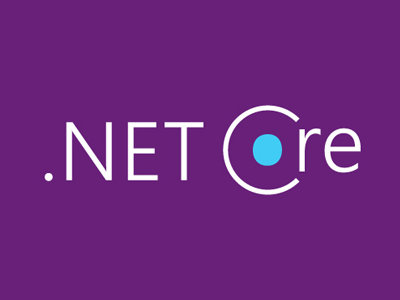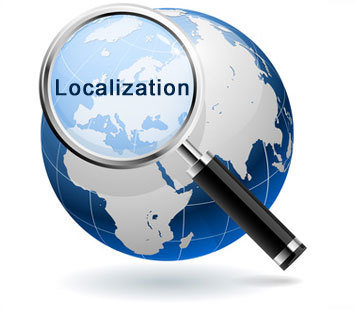Dotnet Core Day

Gökhan GÖKALP
11.11.2017
Devnot
Logging, Caching and Localization in Asp.NET Core 2.0


Agenda
- Logging
- Caching
- Localization
- References
- Contacts

Logging

- In DI system
- Easy configuration in "Program.cs" instead of "Startup.cs"
- ASP.NET Core Logging API provides us lots of logging providers

Logging

How to create log?
public class TodoController : Controller
{
private readonly ILogger<TodoController> _logger;
public TodoController(ILogger<TodoController> logger)
{
_logger = logger;
}
}public IActionResult Index()
{
_logger.LogInformation(1000, "Index method invoked.");
return View();
}- Just inject ILogger object
- Use several logging methods
Logging

How to add providers?
- No explicit logging configuration in "Startup" class.(like 1.x)
- Lots of configuration arises by default with new WebHost configuration builder approach.
- Kestrel
- IIS configuration
- Default configuration sources
- Logging providers
"Console" and "Debug" logging provider default template.
ConfigureLogging((hostingContext, logging) =>
{
logging.AddConfiguration(hostingContext.Configuration.GetSection("Logging"));
logging.AddConsole();
logging.AddDebug();
})Logging

How to add providers?
Use several built-in logging providers with the "ConfigureLogging()" method on WebHost builder.
public static void Main(string[] args)
{
BuildWebHost(args).Run();
}
public static IWebHost BuildWebHost(string[] args) =>
WebHost.CreateDefaultBuilder(args)
.UseStartup<Startup>()
.ConfigureLogging((hostingContext, logging) =>
{ logging.AddConfiguration(hostingContext.Configuration.GetSection("Logging"));
logging.AddConsole();
})
.Build();- Console
- Debug
- EventSource
- EventLog
- TraceSource
- Azure App Service
Logging

Log Category, Log Levels and Log Event Id
- Log category specifies event's source.
- Full qualified class name convention.
info: DotNETCoreDay.Controllers.TodoController[1000]
Index method invoked.
DotNETCoreDay.Controllers.TodoController:Information: Index method invokedTwo ways to create log category:
- Inject "ILogger<Type>".
- "CreateLogger()" method of the "ILoggerFactory".
Two ways to create log level:
- Use encapsulate methods - "ILogger.Log()":
- LogInformation()
- LogCritical()
- LogDebug()
- LogError()
- LogTrace()
- LogWarning()
- Use "ILogger.Log()" directly.
Logging

Log Category, Log Levels and Log Event Id
Use "log event id" to groupe related messages.
info: DotNETCoreDay.Controllers.TodoController[1002] //Get operations
Getting item invalidid
warn: DotNETCoreDay.Controllers.TodoController[4000]
GetById(invalidid) NOT FOUNDLogging

Log Exceptions
Use "LogError()" method.
catch(Exception ex)
{
_logger.LogError(1001, ex, "Oops!");
}Logging

Log Filtering Rules
Specify minimum log levels in "appsettings" easily.
{
"Logging": {
"Console": {
"LogLevel":{
"DotNETCoreDay.Controllers.HomeController" : "Information"
}
},
"LogLevel": {
"Default": "Debug"
}
}
}- Logging provider
- Log category
or in "Program.cs":
WebHost.CreateDefaultBuilder(args)
.ConfigureLogging((hostingContext, logging) =>
{
logging.AddFilter<ConsoleLoggerProvider>("DotNETCoreDay.Controllers.TodoController",
LogLevel.Information);
logging.SetMinimumLevel(LogLevel.Debug); //Default value is "Information"
})
.Build();Logging

Log Scopes
Useful for grouping some logical operations. E.g:
private void DoSomething()
{
using(_logger.BeginScope("DoSomething scope!"))
{
_logger.LogInformation(1000, "DoSomething method invoked.");
//..
_logger.LogWarning(1002, "Something happened!");
}
}- TransactionId
- CorrelationId
To activating scopes:
WebHost.CreateDefaultBuilder(args)
.ConfigureLogging((hostingContext, logging) =>
{
logging.AddConsole(options => options.IncludeScopes = true);
})
.Build();{
"Logging": {
"IncludeScopes": true
}
}or
Logging

Third-party Logging Providers
Asp.NET Core 2.0 supports popular logging providers. E.g:
- elmah.io
- NLog
- Serilog
- etc..
Caching

- Time to market & Performance
- Caching is meant to reduce the latency and network overhead

Caching

Response Caching Middleware
public void ConfigureServices(IServiceCollection services)
{
services.AddResponseCaching(options => {
options.UseCaseSensitivePaths = false;
});
}- More extensible
- Renovated
- Caching operations handles in Asp.NET Core middleware
- Inject "Microsoft.AspNetCore.ResponseCaching" package
Configure in "Startup.cs"
public void Configure(IApplicationBuilder app, IHostingEnvironment env)
{
app.UseResponseCaching();
}Caching

Response Caching Middleware
[ResponseCache(Duration = 20)] //second
public IActionResult Index()
{
return View();
}- Decorate methods or classes
- Default in-memory
ResponseCache attribute
- public
- max-age
- private
- no-store
- etc...
Some HTTP directives (Cache-Control)
HTTP 1.1 Caching specification
Caching

Response Caching Middleware
ResponseCache attribute - VaryByQueryKeys
| Request | Result |
|---|---|
| http://example.com?key1=value1 | Returned from server |
| http://example.com?key1=value1 | Returned from middleware |
| http://example.com?key1=value2 | Returned from server |
- Query key based response caching
Caching

Response Caching Middleware
ResponseCache attribute - Vary
- Specific header info based response caching
[ResponseCache(VaryByHeader = "Accept-Language")]
public IActionResult Index()
{
return View();
}Caching

Response Caching Middleware
ResponseCache attribute - Cache Profiles
public void ConfigureServices(IServiceCollection services)
{
services.AddMvc(options =>
{
options.CacheProfiles.Add("Default",
new CacheProfile()
{
Duration = 60 //Second
})
});
}[ResponseCache(CacheProfileName = "Default"]
public IActionResult Index()
{
return View();
}Caching

Memory Cache
- As a service
public void ConfigureServices(IServiceCollection services)
{
services.AddMemoryCache();
}readonly IMemoryCache _memoryCache;
TodoController(IMemoryCache memoryCache)
{
_memoryCache = memoryCache;
}
CustomerModel GetCustomer(int id)
{
CustomerModel customerModel;
if(!_memoryCache.TryGetValue(id, out customerModel))
{
customerModel = //...
var memoryCacheEntryOptions = new MemoryCacheEntryOptions()
{
SlidingExpiration = TimeSpan.FromMinutes(5)
};
_memoryCache.Set(id, customerModel, memoryCacheEntryOptions);
}
return customerModel;
}Caching

Distributed Caching
- Built-in distributed cache abstractions
- Built-in distributed cache implementations
- "Memory", "Redis" and "SqlServer".
- Sync & Async methods with the "IDistributedCache" interface
How to use?
- Add caching package from NuGet
- Configure "IDistributedCache" implementation in "ConfigureServices" method
- Inject "IDistributedCache" implementation
services.AddDistributedRedisCache(options =>
{
options.Configuration = "localhost:6379";
options.InstanceName = "master";
});readonly IDistributedCache _distributedCache;
public TodoController(IDistributedCache distributedCache)
{
_distributedCache = distributedCache;
}Localization

- Asp.NET Core provides services and middleware

For localization:
- Make the app's content localizable
- Provide localized resources
- Choose implementation strategy
Localization

Make the App's Content Localizable
- Like a tradionational Asp.NET resource(.resx) file
- "IStringLocalizer" and "IStringLocalizer<T>" instead of "Resource.Text"
- No need to create resource file for the main culture
- Also “IHtmlLocalizer” and “IHtmlLocalizer<T>”
public class TodoController : Controller
{
private readonly IStringLocalizer<TodoController> _localizer;
public TodoController(IStringLocalizer<TodoController> localizer)
{
_localizer = localizer;
}
public IActionResult Index()
{
CultureModel cultureModel = new CultureModel();
cultureModel.Title = _localizer["Merhaba Dünya!"];
return View(cultureModel);
}
}Localization

Make the App's Content Localizable
public class TodoController : Controller
{
private readonly IStringLocalizer _localizerForShared;
public CulturesController(IStringLocalizerFactory localizerFactory)
{
_localizerForShared = localizerFactory.Create(typeof(SharedResource));
}
}IStringLocalizerFactory (e.g shared resources)
Resource path: controller file path
- Resources/Controllers/TodoController.en.resx
Localization

Make the App's Content Localizable
@using Microsoft.AspNetCore.Mvc.Localization
@inject IViewLocalizer Localizer
@{
ViewData["Title"] = Localizer["Merhaba Dünya!"];
}View Localization - IViewLocalizer
Resource path: view file path
- Resources/Views/ControllerName/Action.en.resx
Localization

Make the App's Content Localizable
public class CreateCultureModel
{
[Required(ErrorMessage = "This field is required.")]
public string Name { get; set; }
}DataAnnotations Localization
- Already localized with the "IStringLocalizer<T>”
Localization

Configuring Localization
public void ConfigureServices(IServiceCollection services)
{
services.AddLocalization(options => {
options.ResourcesPath = "Resources";
});
services.AddMvc()
.AddViewLocalization(LanguageViewLocationExpanderFormat.Suffix)
.AddDataAnnotationsLocalization(options =>
{
options.DataAnnotationLocalizerProvider = (type, factory) => {
return factory.Create(typeof(SharedResource));
}
});
}
public void Configure(IApplicationBuilder app, IHostingEnvironment env)
{
var lockOptions = app.ApplicationServices.GetService<IOptions<RequestLocalizationOptions>>();
app.UseRequestLocalization(lockOptions.Value);
}How to add localization to service collection?
Localization

Configuring Localization
public void ConfigureServices(IServiceCollection services)
{
services.Configure<RequestLocalizationOptions>(options => {
var supportedCultures = new List<CultureInfo>
{
new CultureInfo("tr-TR"),
new CultureInfo("en-US")
};
options.DefaultRequestCulture = new RequestCulture("tr-TR");
options.SupportedCultures = supportedCultures;
options.SupportedUICultures = supportedCultures;
});
}SupportedCultures(date, currency etc.) and SupportedUICultures(translate)
- Configure with the "RequestLocalizationOptions”
Localization

Implement a Strategy to Select the Language
3 options with RequestLocalization
-
QueryStringRequestCultureProvider
- First provider, e.g: http://localhost/?culture=en-US&ui-culture=en-US
-
CookieRequestCultureProvider
- To track user selected culture
-
AcceptLanguageHeaderRequestCultureProvider
- The predefined culture of user's browser
References
Contacts

- LinkedIn: https://www.linkedin.com/in/gokgokalp
- Web: http://www.gokhan-gokalp.com
- E-mail: gok.gokalp@yahoo.com
- Twitter: @gokgokalp